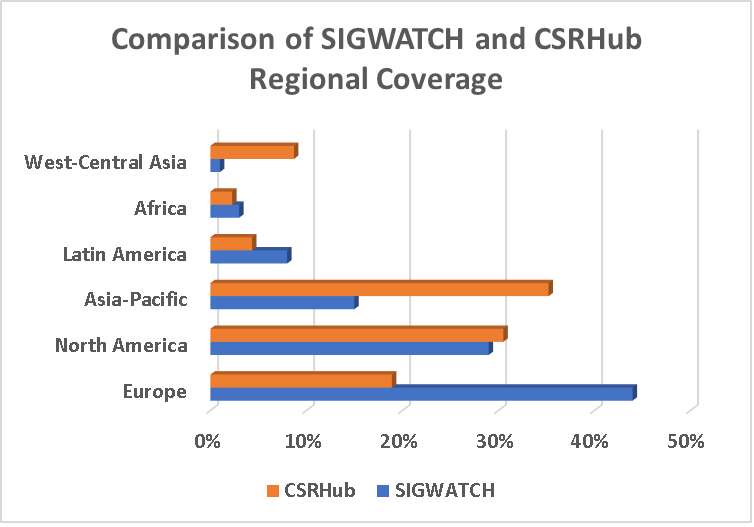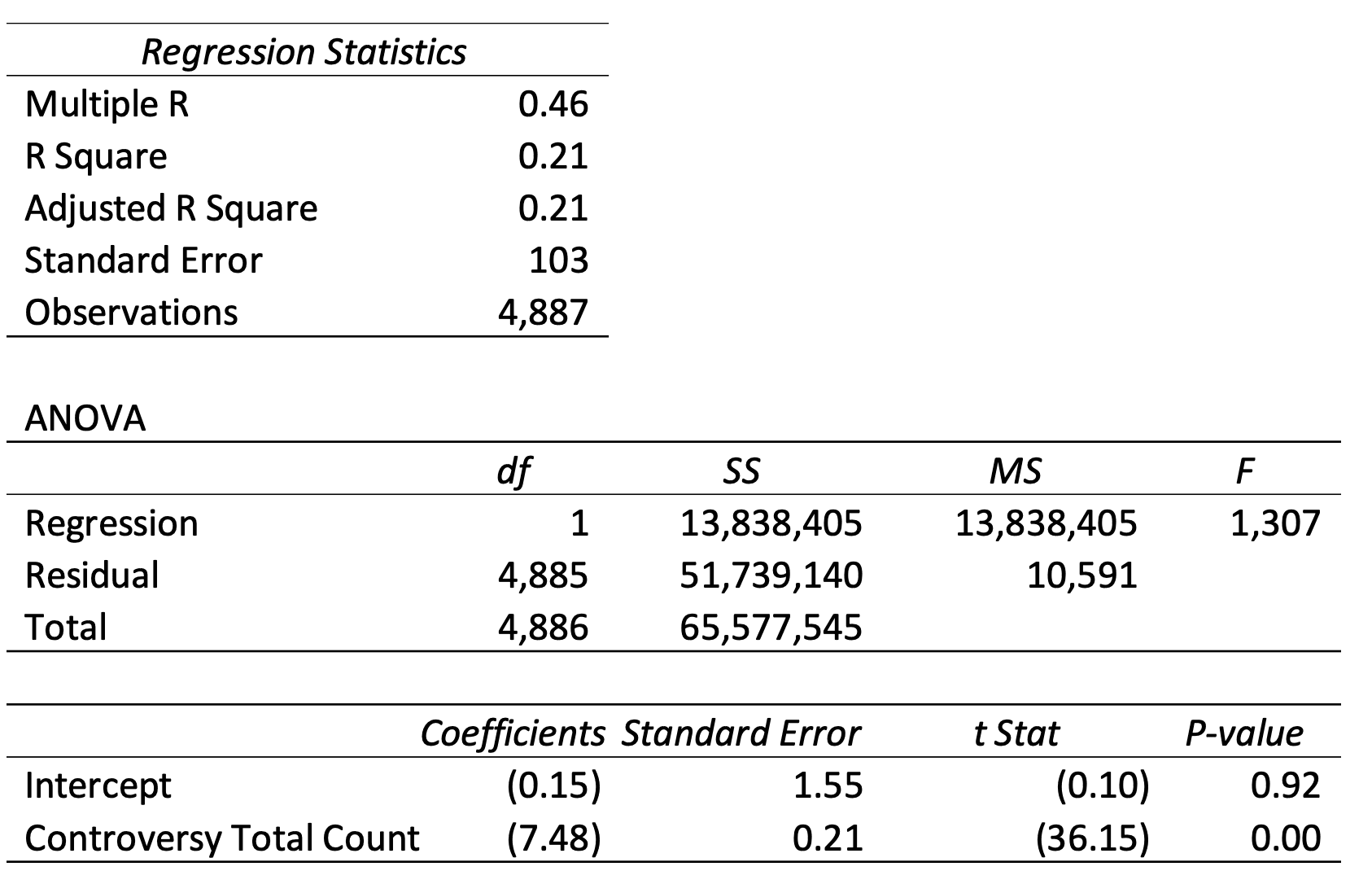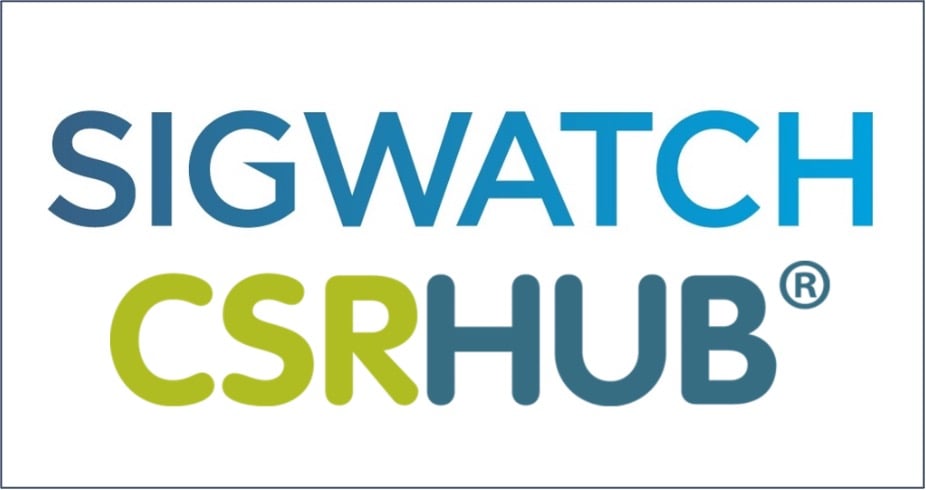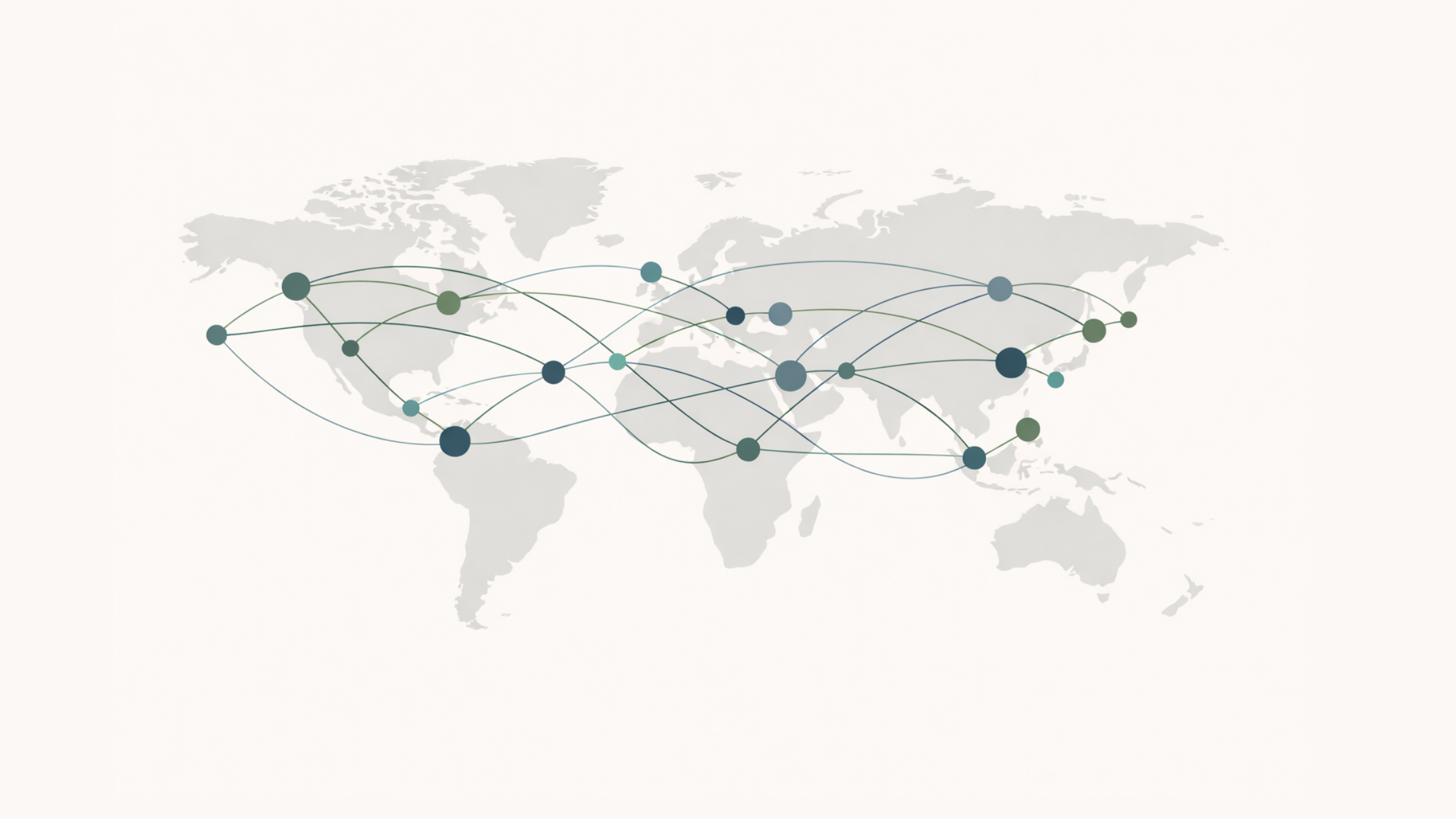Our friends at SIGWATCH track the views of non-government organizations (NGOs) on company sustainability. They recently expanded their reference list of corporates monitored for NGO mentions to 38,467 entities, of which over 17,000 are associated with ISINs, which greatly eases integration with other datasets. For these 17,000 entities, they have shared their time-weighted NGO criticism and praise scores. For almost 15,000 of them, we already have ratings from other data sources.
The 50,000+ entities that CSRHub covers have a different regional distribution than that of the firms that SIGWATCH monitors. As you can see from the chart below, SIGWATCH has extremely deep data on European entities. SIGWATCH explains that this is because leading European firms and multinationals tend to get a lot of attention from NGOs, even from non-European NGOs. Europe is also home to a large number of active campaigning NGOs of all sizes.

Of the more than 850 sources we ingest, SIGWATCH is the only one that focuses on NGO and not-for-profit input. They monitor for both positive and negative NGO sentiment on a range of companies, industries, and issues, updating the data daily. This data can be used to identify the underlying issues within Environment, Sustainability, and Governance (ESG) related topics, from animal rights and biodiversity to climate change and Indigenous peoples.
SIGWATCH’s time-weighted scores aggregate the running scores over a rolling four-year period, weighting recent comments more strongly than historic comments, using a standard half-life formula. NGO praise and criticism scores are kept separate, which enables users to see more clearly which companies are viewed by civil society as leading on important ESG issues.
As is true with most ESG data sets, some entities receive a null/not available score on a lot of issues, whereas others receive significant attention. The latter tend to be the largest companies, or those in highly “exposed” sectors such as extractives or consumer goods.
SIGWATCH’s unique NGO focus means that its data tends to agree most with other sources that track “controversies”, such as MSCI’s ESG Controversies data set. Here there is a strong (21%, F score > 1,300) correlation between the net positive or negative view from SIGWATCH’s time-weighted values and MSCI’s Controversy Total Count score.

Interestingly, the correlation between SIGWATCH’s net view and MSCI’s Controversy Score is lower (only 6%, F score > 300). This suggests to us that both data sets are sensitive to the frequency with which controversies occur, but that SIGWATCH’s NGO audience has a different, and often more critical, perspective on controversies than MSCI’s investor audience.
CSRHub seeks to include the input and views of all the stakeholders of the entities it rates. Most of our data sources start from information that companies have disclosed publicly. They then analyze these disclosures and add analyst views, model calculations, or sentiment analysis to build their scores. Some sharing of base data and similarity of methods embeds a common element in each source’s view. We extract and use this agreement—this consensus—to generate our ratings. SIGWATCH’s perspective adds another dimension to our analysis. We are happy to include more data in our scores on both the positive and negative impact of NGOs, as they are an important part of society and long-time drivers of ESG thinking.
 Bahar Gidwani is CTO and Co-founder of CSRHub. He has built and run large technology-based businesses for many years. Bahar holds a CFA, worked on Wall Street with Kidder, Peabody, and with McKinsey & Co. Bahar has consulted to a number of major companies and currently serves on the board of several software and Web companies. He has an MBA from Harvard Business School and an undergraduate degree in physics and astronomy. He plays bridge, races sailboats, and is based in New York City.
Bahar Gidwani is CTO and Co-founder of CSRHub. He has built and run large technology-based businesses for many years. Bahar holds a CFA, worked on Wall Street with Kidder, Peabody, and with McKinsey & Co. Bahar has consulted to a number of major companies and currently serves on the board of several software and Web companies. He has an MBA from Harvard Business School and an undergraduate degree in physics and astronomy. He plays bridge, races sailboats, and is based in New York City.
About CSRHub
CSRHub offers one of the world’s broadest and most consistent set of Environment, Social, and Governance (ESG) ratings, covering 50,000 companies. Its Big Data algorithm combines millions of data points on ESG performance from hundreds of sources, including leading ESG analyst raters, to produce consensus scores on all aspects of corporate social responsibility and sustainability. CSRHub ratings can be used to drive corporate, investor and consumer decisions. For more information, visit www.CSRHub.com. CSRHub is a B Corporation.


.png)
